The Destructive Nature of Beauty Filters
Images that have been used in this piece are not meant to shame or disrespect the individuals in them in any way. They are for illustrative purposes only.
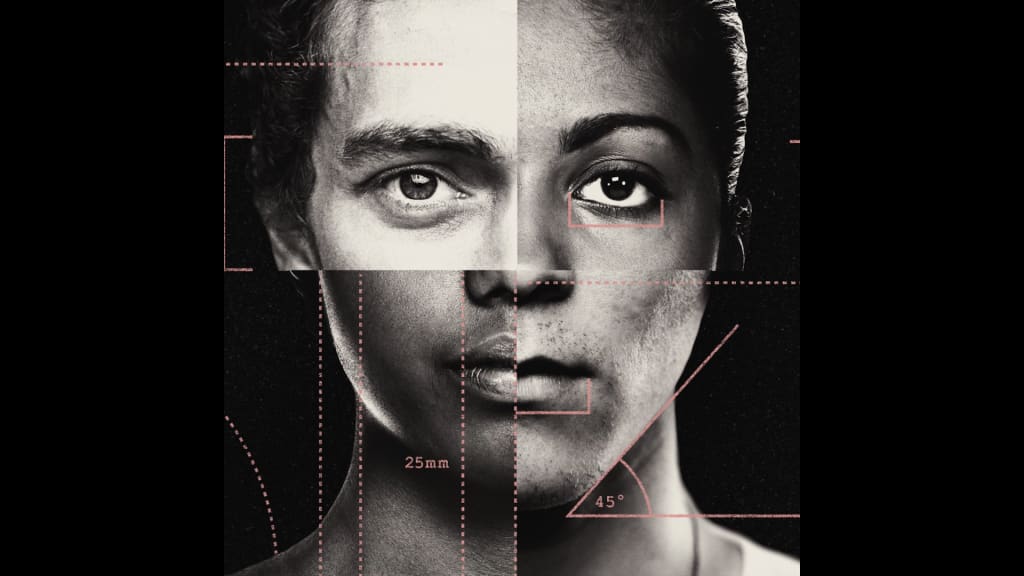
The existence of Instagram and social media filters has redefined beauty standards across the world. Their existence, whilst meant to be fun has now become something that is harmful and unhealthy. Social media filters are so popular that they have even led to the development of mobile applications dedicated to altering the human face in the very same way filters do. However, their purpose is to make it easier for just about anyone to do this and make it less detectable. Their continued growth and success is a show of their demand, with competitors aiming to outdo one another and push the bounds of what artificial intelligence can do to ensure that the beauty standard is achieved even if it is just in digital form. With celebrities scattered across Instagram, many utilize these filters along with influencers and millions are exposed to this standard without being aware of the deceit behind it.
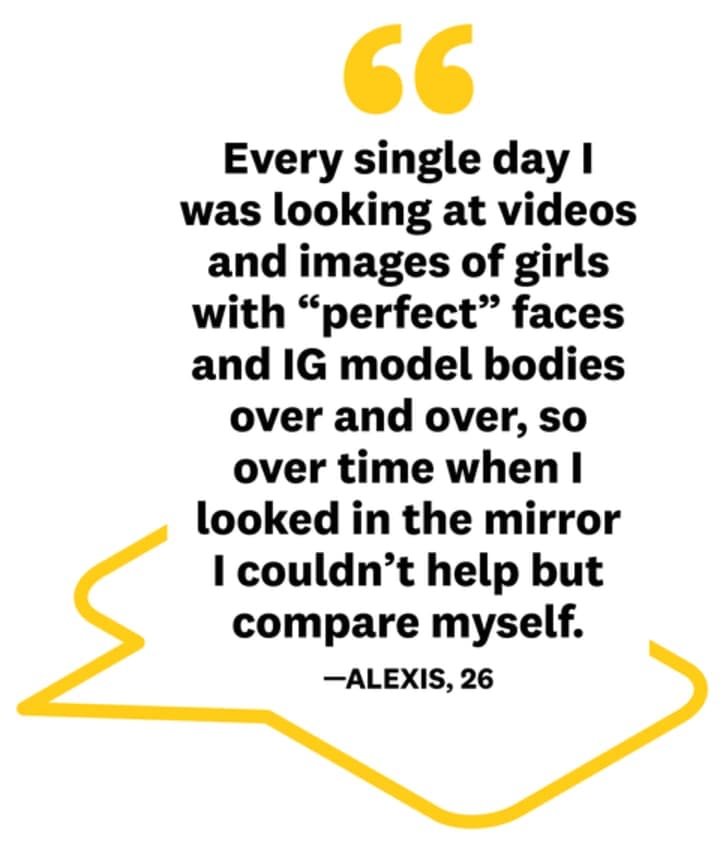
The constant exposure to such is bound to lead to emotional and mental instability within the self. Young girls and women are continuously fed a false narrative as to what they should look like because they are deceived by the images and videos that are plastered across these social media platforms. Research studies have shown an increase in the number of women receiving cosmetic procedures and many journals and surveys report the negative influence that social media filters and its use can have on self-perception and mental health.
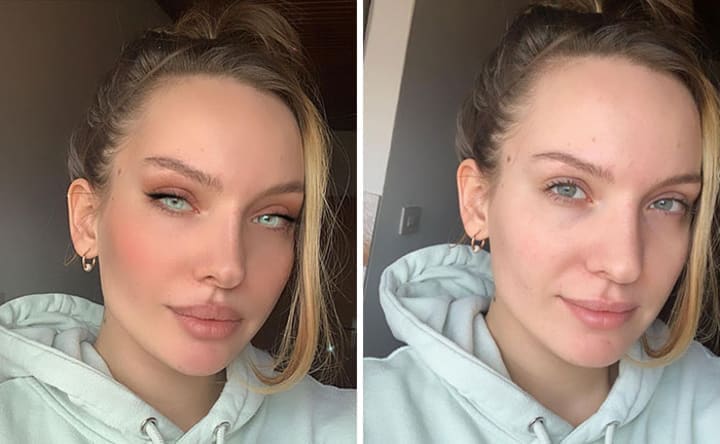
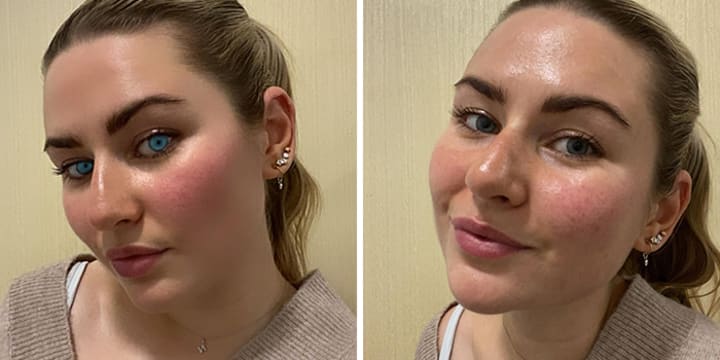
Current beauty standards are unrealistic but why?
A beauty standard can be defined as a physical feature that is considered attractive or acceptable within society. Over the decades these standards have evolved, influenced by the beauty and fashion industry, television and now social media. Today, Western beauty standards consists of high cheek bones, plump lips, blemish-free and pore-less skin accompanied by a straight and narrow nose but that’s only the beginning. Results from a 2019 American survey revealed that the ideal woman is expected to stand at 5 foot 5 and weigh 126 pounds with a 26 inch waist but the average American woman has a 38 inch waist. The ideal American man is expected to be over 6 feet tall and weigh over 187 pounds (Hoff 2019). Whilst this would be considered obese according the the rule of BMI, it’s interesting to note that this survey highlighted that the average male is expected to exercise several times a week as well. However, women are adhered to standards that are unrealistic and unattainable and it's no surprise that the survey showed the ideal women’s body to be impractical because that is what individuals are exposed to on a daily basis through social media. The conversation on body image is entirely separate from that of beauty filters and I will write on that in time, but the fact that millions are exposed to the same false narrative is now dictating what is ideal in terms of how one should look and that is terrifying.
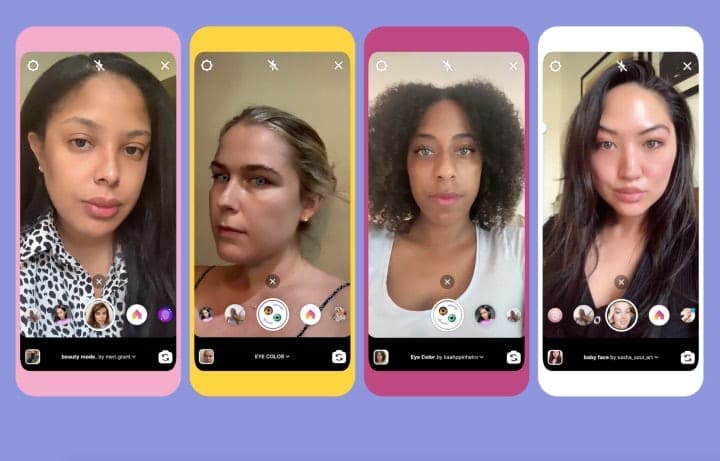
Instagram and TikTok are perfect examples of how social media is a driving force in creating and setting these paradigms through the augmented reality filters that these platforms have created. Filters began as something fun and light-hearted with cute puppy dog ears and love heart eyes but now it has morphed into something dark and dangerous with tool-kits that completely alter the face, skin and eye color. In 2019, Instagram banned all its cosmetic surgery filters after coming under fire for contributing negatively towards mental health (BBC).
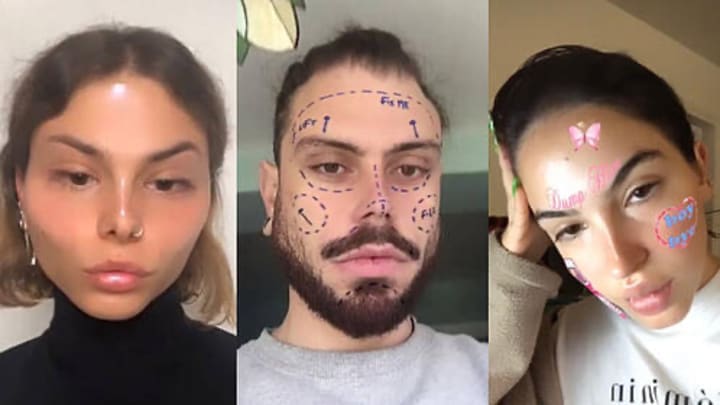
These cosmetic surgery filters would alter the face by making it look as though individuals had face lifts, lip injections and fillers but the real question is what purpose were they meant to serve to begin with.
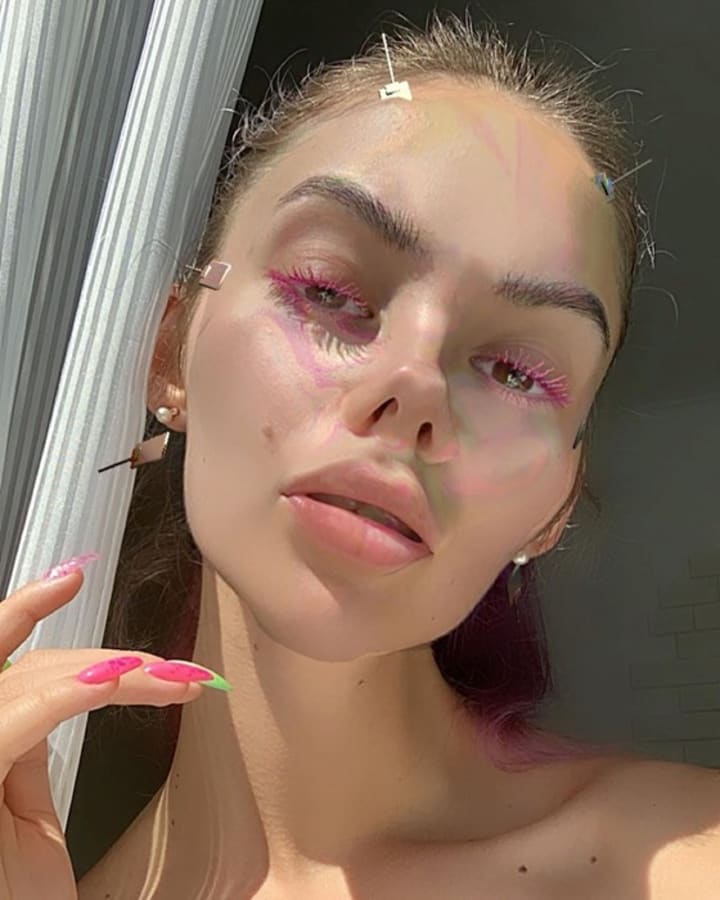
Ashley James, a body positive influencer shares images without the use of filters in order to inspire the natural appearance that we all share. She has shared a powerful message in regards to Instagram filters by stating, “Altering our appearance has become a commodity. We are almost being forced by these filters to change how we look offline to match the online version of ourselves” (BBC).
One could argue that there is no harm in the use of a cosmetic filter for example, however the internal impact for many could be severe. Tricking the mind into believing they may need cosmetic procedures when the thought may have never entered one’s mind prior to that moment. Why is that harmful? It suggests that there is something wrong with an individual’s appearance when that is never the case.
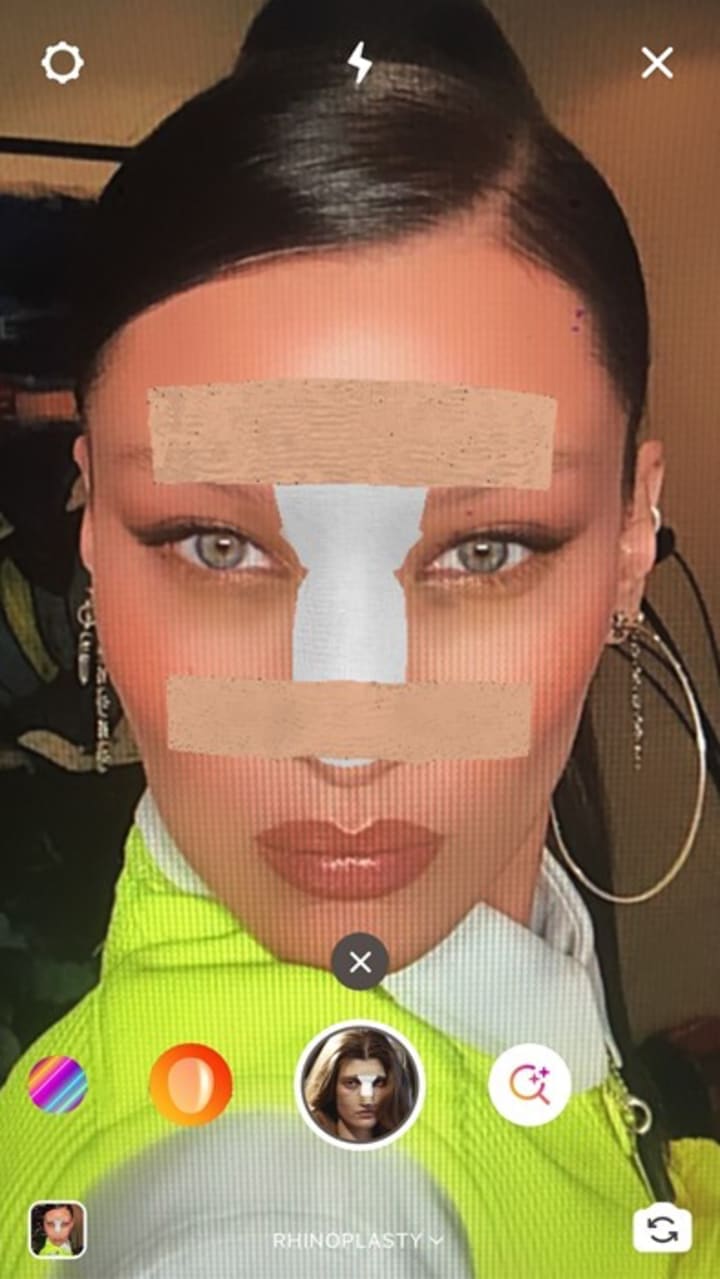
TikTok reinforces the false narrative surrounding beauty standards through its censorship methods and its own filters.
In a now public document, the video sharing application attempted to prevent particular videos from reaching the “For You” page which is the first thing that one sees upon opening the application and where the most popular videos wound up. The document instructed moderators to suppress videos that included the main subject being “ugly, “poor” or “disabled”. The document further mentions more details such as “Abnormal body shape”, “too many wrinkles”, “obvious beer belly” and a plethora of “low quality” traits. This was following the notion that such videos are unattractive as the main focal point is the subject in front of the camera and if it is not aesthetically pleasing it would decrease the number of users (The Intercept).
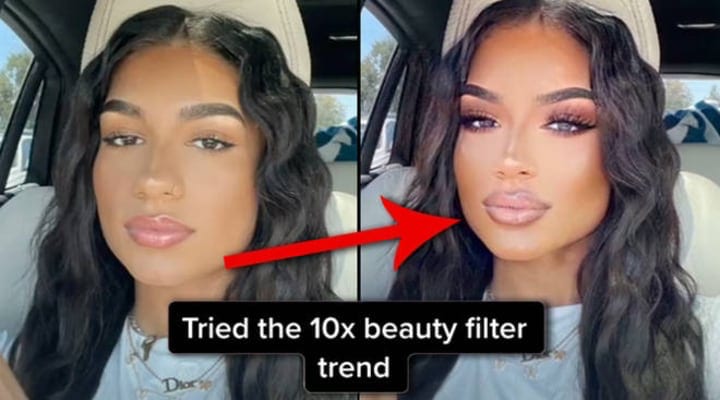
Recently, a cosmetic surgery filter featured on the platform went viral but prior to this, many users naturally upload videos that clearly use a beauty filter, giving off skin that consists of no blemishes or pores. This feature of the application has become the norm and the negative aspect of this is the large number of young users that view the millions of uploads each and every day. This continued exposure to faces that are not relatable leads to self-esteem issues, triggering body dysmorphia and depression in those who may be at high risk.
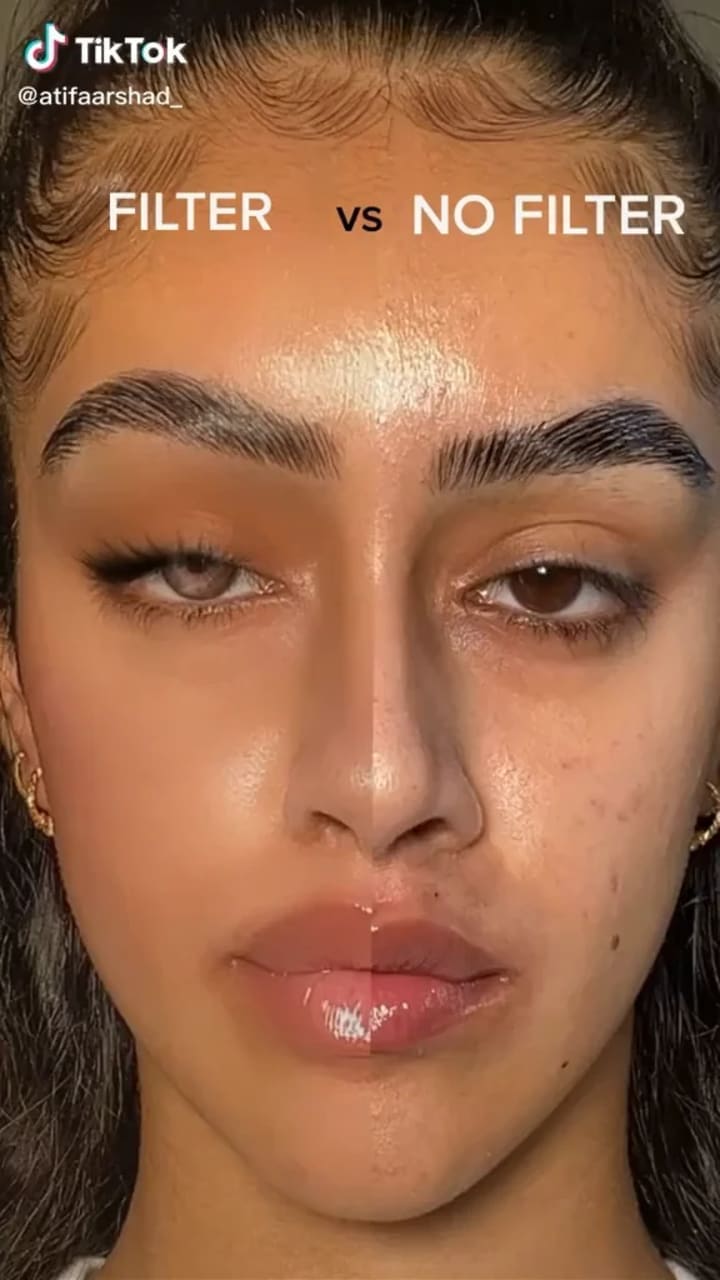
Numerous studies have highlighted the impact that social media filters can have on mental health. The results indicate that there is a significant negative effect, leading to many problems within the self. One study looked to see if there was a link between filter use and body image amongst young girls, most of who were 13 at the time. The results indicated that those who did use social media were more critical and analytical about their body, shape, weight and need to be thin. At the same time, girls who shared images of themselves and invested in manipulating their images “but not higher media exposure, were associated with greater body‐related and eating concerns, including after accounting for media use and internalization of the thin ideal” (International Journal of Eating Disorders).
According to a survey that consisted of 1500 between the ages of 14 and 24, Instagram was ranked as the worst social media application for mental health and well-being. More than 68 percent were in favor of Instagram highlighting when images have been digitally manipulated perhaps through the use of a watermark (Royal Society For Public Health.) Shirley Cramer CBE, Chief Executive, RSPH, said:
“Social media has been described as more addictive than cigarettes and alcohol, and is now so entrenched in the lives of young people that it is no longer possible to ignore it when talking about young people’s mental health issues. Through our Young Health Movement, young people have told us that social media has had both a positive and negative impact on their mental health. It’s interesting to see Instagram and Snapchat ranking as the worst for mental health and wellbeing – both platforms are very image-focused and it appears they may be driving feelings of inadequacy and anxiety in young people.”
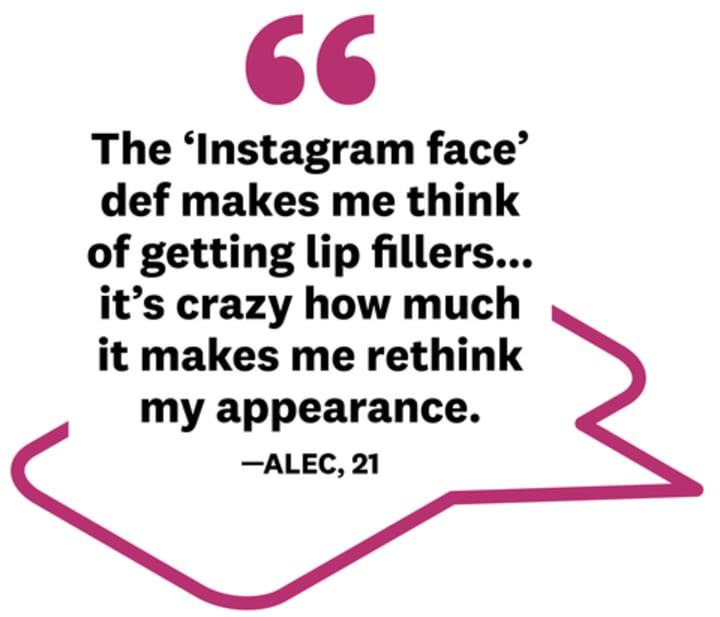
With how normal filter use has become, photo editing applications have seen an opportunity to gain financially by making it easier for many to look like they do when they use the filters but now, making it less obvious. Facetune, used for enhancing and retouching images has become more popular than ever, with celebrities and influencers opening up about using the application to manipulate their images. Although many have been open about this, implying the intent is often to enhance color and create subtle changes - it is clear that the changes are often drastic with many individuals becoming unrecognizable in images. Some manipulation is so severe that one questions how the human eye can see it as acceptable due to how unnatural some results can be. Perhaps this implies a deeper issue with self perception and a clear sign of something unhealthy at play.
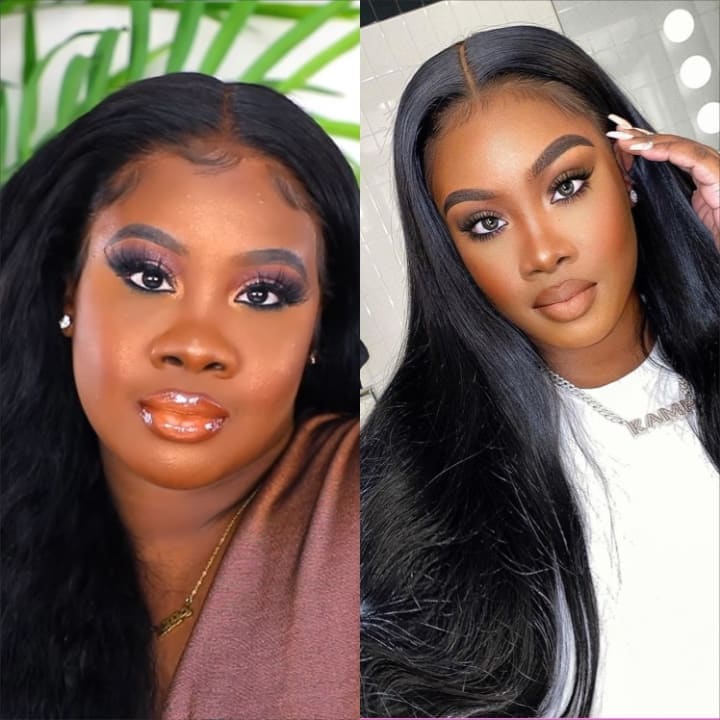
This revelation from celebrities and influencers has now given the public the power to mimic the very images that appear on social media. This has given rise to a phenomenon known as Instagram Face (Jennings). It’s a logical notion, considering that millions on the platform look exactly the same, sharing similar features as they all manipulate their images to match what they are exposed to on the platform. The new ideal.
Perhaps the most harmful effects come from image manipulation that is harder to detect.
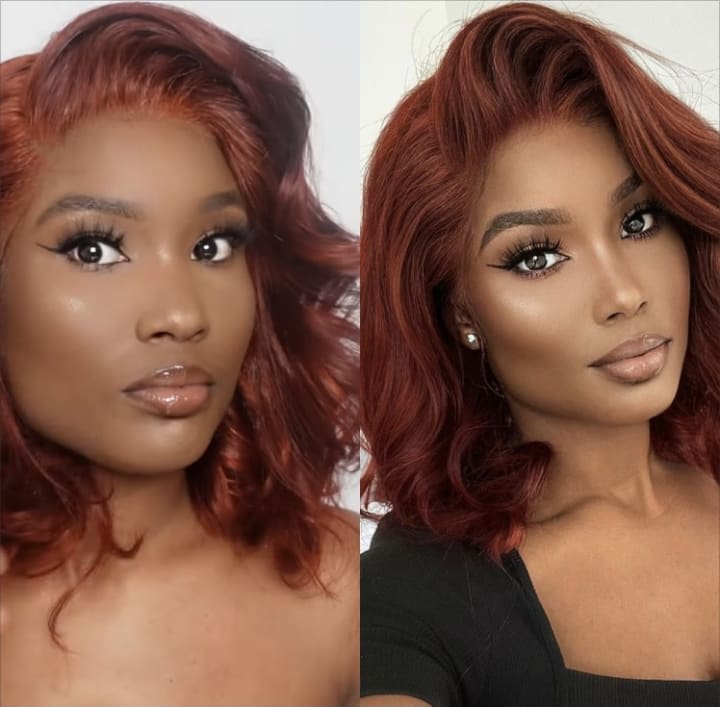
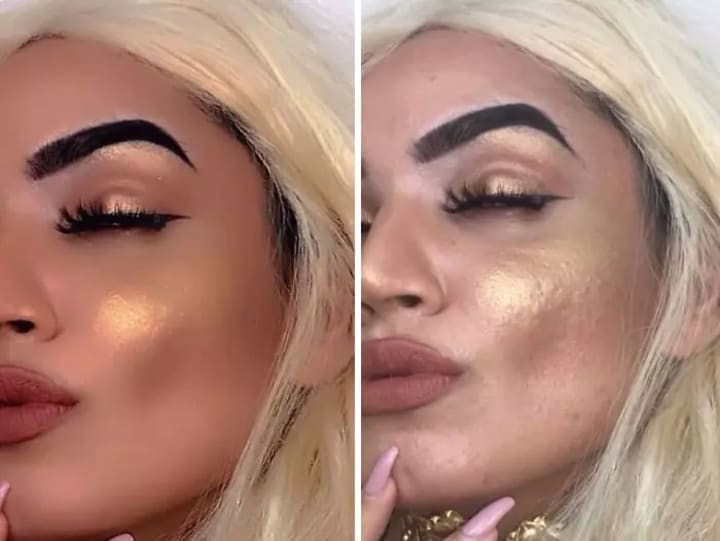
In recent years, plastic surgeons have reported seeing a much larger number of people coming in requesting procedures that mimic what they see with the use of filters. In 2018, The American Society of Plastic Surgeons highlighted that more than $16.5 billion was spent on cosmetic surgery alone, with 92 percent of these procedures being performed on women. Since fillers and Botox are non-invasive and are mere injectables, people seeking minor changes and those that are much younger aren’t excluded from this wave ( The Age of Instagram Face). Researchers at the Boston medical center have coined this phenomena Snapchat Dysmorphia which is now included in the universities research journal. Their report goes on to state the harmful effects that social media filters do have, such as the capability to trigger body dysmorphia, depression and an unhealthy obsession with cosmetic procedures. Surgeons are disturbed by this factor due to the fact that filters actually distort facial features in an unhuman like fashion, creating a standard that is unrealistically unattainable (Wolfson).
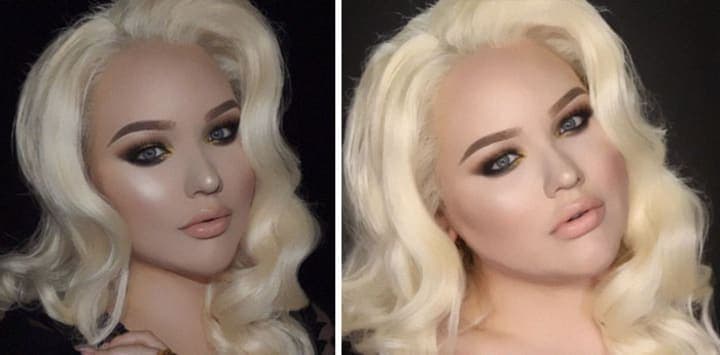
In regards to beauty filters, Dr Amadi says, "It seems harmless at first, but a slight edit here and a slight edit there can spiral into obsessive-compulsive tendencies around body image. These alterations divorce you from reality–nobody glows, sparkles, and has perfect abs 24/7 in real life.”
Social media filters have not only changed the way society views themselves but they have set a standard that has now become dangerous simply because it is a standard that can never be achieved. It is a standard that does not even exist as it is only achievable through artificial intelligence that is capable of altering facial features to meet the ideal set by filters. This standard is harmful because of the negative way in which it alters self-perception and triggers a plethora of other internal struggles. With the normalization of this phenomenon, changing it may seem impossible unless more individuals choose to refrain from the dependency of filter use. Even then, the standard has already been set and it may be a long time before it evolves but into what? Society is responsible for perpetuating this false narrative whether it be through using these filters or manipulating images but what began this wave is social media and thus giving way to dangerous obsessions that may alter how humans look in the future forever.
Thank you for reading.
- Joy Johane







Comments
There are no comments for this story
Be the first to respond and start the conversation.